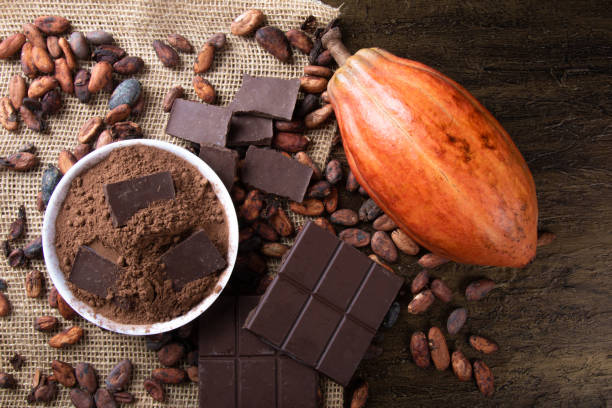Dark chocolate has become a popular indulgence for many, not just for its rich and decadent flavor but also for its potential health benefits. Recent studies have suggested that dark chocolate may play a role in reducing the risk of diabetes, particularly type 2 diabetes. In this article, we will explore the relationship between dark chocolate and diabetes, shedding light on how this delightful treat can be beneficial for our health.
Hello everyone ! Welcome to SasVibe.
Research Findings
Recent research has revealed intriguing findings regarding the consumption of dark chocolate. A study published in The BMJ indicates that individuals who consume dark chocolate at least five times a week have a 21% lower risk of developing type 2 diabetes. This research highlights the positive impact that dark chocolate can have on our health, specifically in relation to diabetes risk.
Benefits of Dark Chocolate
To understand why dark chocolate is so beneficial, we must delve into its composition. Dark chocolate is rich in cocoa, which contains numerous health-promoting compounds. Among these are antioxidants such as polyphenols and flavonoids, which support various bodily functions.
Flavonoids found in dark chocolate, including catechins, anthocyanins, and proanthocyanidins, have been shown to be particularly advantageous. They can help regulate blood pressure, improve glycemic response, enhance platelet function, and reduce inflammation. Furthermore, studies suggest that cocoa polyphenols may aid in decreasing gut inflammation and preventing other inflammatory issues within the body.
Impact on Brain Health
Another significant advantage of dark chocolate is its positive effects on brain health. The flavonoids in dark chocolate help protect brain cells and enhance their functionality. This can lead to improved memory and a reduced risk of cognitive decline, including conditions such as Alzheimer’s and Parkinson’s disease. Thus, indulging in dark chocolate is not only good for the body but also for the mind.
Dark Chocolate and Diabetes
Now, let’s discuss the direct connection between dark chocolate and diabetes. The flavonoids in dark chocolate can improve the body’s insulin sensitivity, allowing it to manage glucose more effectively. This, in turn, helps regulate blood sugar levels. Consuming dark chocolate in moderation can, therefore, contribute to lowering the risk of developing diabetes.
Experts recommend that individuals with diabetes can safely consume 30-60 grams of dark chocolate daily. However, it is crucial to choose the right type of chocolate, as many commercial varieties contain excessive sugar and artificial ingredients that can counteract the benefits. Opting for dark chocolate with a high cocoa content is essential to maximize its health benefits.
Real-life Examples
Despite its advantages, some people may shy away from dark chocolate due to its slightly bitter taste. However, many are unaware of the profound health benefits that the polyphenols and flavonoids in dark chocolate offer. For instance, a person who incorporates dark chocolate into their daily diet may experience better glucose management and improved insulin sensitivity, significantly reducing their risk of diabetes.
Dr. Padmini BV, an expert in the field, states, “The cocoa polyphenols found in dark chocolate are incredibly beneficial, especially for those affected by diabetes.”
Conclusion
In summary, dark chocolate has the potential to reduce the risk of diabetes, provided it is consumed in the right amounts and in the right form. Enjoying moderate portions of dark chocolate several times a week can be a delightful addition to a healthy lifestyle. However, it should not be considered a substitute for medical treatment. Maintaining a balanced diet and a healthy lifestyle remains paramount for overall well-being.



